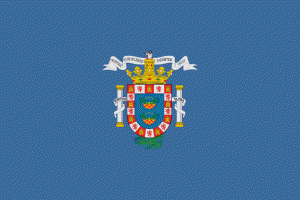Melilla
 |
 |
Melilla is one of the special member state territories of the European Union. Movements to and from the rest of the EU and Melilla are subject to specific rules, provided for inter alia in the Accession Agreement of Spain to the Schengen Convention.
As of 2019, Melilla had a population of 86,487. The population is chiefly divided between people of Iberian and Riffian extraction. There is also a small number of Sephardic Jews and Sindhi Hindus. Regarding sociolinguistics, Melilla features a diglossia between the official Spanish (strong language) and Tarifit (weak language).
Melilla, like the autonomous city of Ceuta and Spain's other territories in Africa, is subject to an irredentist claim by Morocco.
The original name (currently rendered as Rusadir) was a Punic language name, coming from the name given to the nearby Cape Three Forks. Addir meant "powerful". The name creation is similar to that of other names given in Antiquity to outlets along the North African coast, including Rusguniae, Rusubbicari, Rusuccuru, Rusippisir, Rusigan (Rachgoun), Rusicade, Ruspina, Ruspe or Rsmlqr.
Meanwhile, the etymology of the current city name (dating back to the 9th century, rendered as Melilla in Spanish) is uncertain. Since Melilla was an active beekeeping location in the past, the name has been related to honey; this is tentatively backed up by two ancient coins featuring a bee as well as the inscriptions and. Others relate the name to "discord" or "fever" or also to an ancient Arab personality.
Map - Melilla
Map
Country - Spain
 |
 |
| Flag of Spain | |
Anatomically modern humans first arrived in the Iberian Peninsula around 42,000 years ago. The ancient Iberian and Celtic tribes, along with other pre-Roman peoples, dwelled the territory maintaining contacts with foreign Mediterranean cultures. The Roman conquest and colonization of the peninsula (Hispania) ensued, bringing the Romanization of the population. Receding of Western Roman imperial authority ushered in the migration of different non-Roman peoples from Central and Northern Europe with the Visigoths as the dominant power in the peninsula by the fifth century. In the early eighth century, most of the peninsula was conquered by the Umayyad Caliphate, and during early Islamic rule, Al-Andalus became a dominant peninsular power centered in Córdoba. Several Christian kingdoms emerged in Northern Iberia, chief among them León, Castile, Aragon, Portugal, and Navarre made an intermittent southward military expansion, known as Reconquista, repelling the Islamic rule in Iberia, which culminated with the Christian seizure of the Emirate of Granada in 1492. Jews and Muslims were forced to choose between conversion to Catholicism or expulsion, and eventually the converts were expelled through different royal decrees.
Currency / Language
| ISO | Currency | Symbol | Significant figures |
|---|---|---|---|
| EUR | Euro | € | 2 |
| ISO | Language |
|---|---|
| EU | Basque language |
| CA | Catalan language |
| GL | Galician language |
| OC | Occitan language |
| ES | Spanish language |















